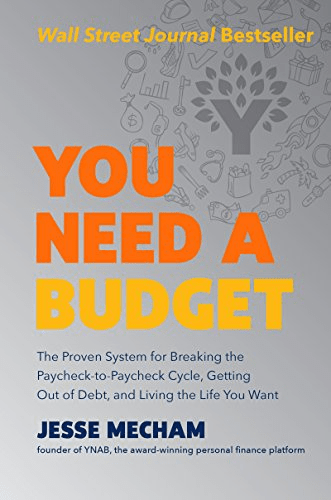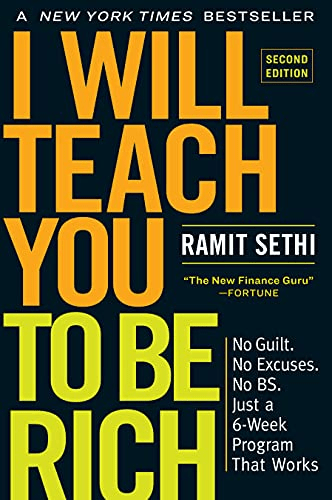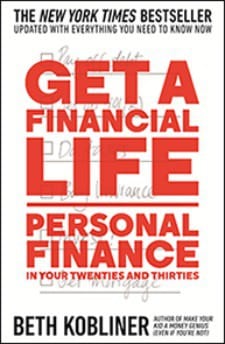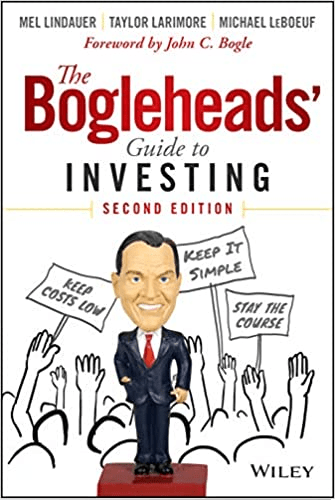This post may contain affiliate links and Corporette® may earn commissions for purchases made through links in this post. As an Amazon Associate, I earn from qualifying purchases.

How should you invest $10K? Readers were talking about this on our money roadmap post, and I thought it might be helpful to talk about more. Maybe you've recently gotten a bonus or small inheritance… maybe you've just been saving for a while and are now saying, OK, let's invest this sucker. So what are the options?
I'm not a personal finance expert, of course, but here's what I'd do (assuming you already have a fully-funded emergency fund and no credit card debt. If you still have student loan debt, you may want to look at your interest rates and pay off all or part of a loan that has a particularly high interest rate.)
Psst: In honor of this series' original title, Tales from the Wallet — here's a wallet we love!

Beyond that, though:
a) If you're eligible to contribute to a Roth IRA, put $5K in there — tax savvy investments are almost always the best. (Rethink this option if you're in a very high tax bracket now but expect to be in a much lower one when you retire or need the money.) You actually have until April 15 to make a 2013 contribution to a Roth IRA if you haven't already ($5K is the yearly max).
Depending on which broker you're using, you may be able to already make a 2014 contribution as well. Once you have the money in a Roth IRA, invest it in a simple index fund. (I'll admit I haven't looked into the “backdoor Roth IRA” much, if only because the first step seems to be “hiding” other IRAs, including my still very active SEP-IRA. But: if you aren't eligible for a Roth IRA, consider reading more about it.)
b) If you're not already maxing out your 401K, bump up your monthly contribution, either in the short term or long term to amount to $10K. Then, use the $10K you'd already saved to make up for the lost salary. (You may find you don't even miss the lost salary and still have some or all of that $10K to invest!).
c) Invest it in the open market. If you're already maxing out your tax-advantaged savings, there are a few options I would consider:
Admiral Shares at Vanguard. Vanguard offers two classes of shares in index funds: Investor Shares (where the minimum is usually $3K) and Admiral Shares (where the minimum is usually at least $10K, but sometimes as much as $100K). The Investor Shares offer low fees… but the fees for the Admiral Shares are way, way lower.
(For some reason I always think of the Captain on How I Met Your Mother when I think about Admiral Shares!) Fees really do matter over the life of an investment, so paying a super low fee for a broad index fund is a great approach. (If you want to diversify or only have enough for Investor Shares, don't worry — if you keep contributing and cross the minimum, Vanguard will convert them to Admiral Shares automatically. They only do that once a year, though, so if you know you've just hit the Admiral minimum you may want to call and ask for your shares to be converted.)
For example: Vanguard Total Stock Market Index Fund Admiral Shares have an expense ratio of .05% (and a $10K minimum investment); the investor shares in the same fund have an expense ratio of .17%. (Full disclosure: I'm not being compensated from Vanguard at all for this post (nor have I ever been). But, if you WORK for Vanguard and would LIKE to pay me, let's tawlk…)
A lifecycle fund (um, ok, like the ones at Vanguard). Lifecycle funds have higher fees because they're more managed, but the appeal is that the managers automatically adjust the investments so that they become more conservative as the fund approaches the end of its life. For example: Vanguard Target Retirement 2045 Fund has expense fees of .18% and a minimum investment of $1K; they suggest the fund for people planning to retire between 2043 and 2047.
Setting up automatic investing in order to invest the money in one of the above, but not all at once, thereby spreading your risk over a wider time period. This is a modified version of dollar-cost averaging — the theory there is that if you invest in the market at regular intervals you'll end up buying some stocks “low” and some stocks “high,” which gives you a balance between the two. Automatic investing can be trickier, but it might be a good option if you happen to look at the fund's chart and realize that it's at the highest price it's been in months.
This may be the situation right now — a lot of people are expecting there to be a “market correction” sometime soon, possibly even a sharp one. What does this mean for you? If you have nothing but time on your hands, you can wait if/until the market takes that dip, and then invest then. This is also an awesome option for psychics, who obviously know exactly when the market's going to dip.
But: if your timeframe is long (and you plan to keep the money invested for at least 10 years), and you'd rather just spend the time today and not think about it anymore — then consider setting up automatic investing. There's still no guarantee that the market will be LOWER when the money is actually invested (the only way to do that is watch and wait for the stock market to dip!) but it spreads the risk over many months. This post describes how to do it in both Vanguard and Schwab — in order to invest $10K you may want to make your investment be $1K over 10 months, or $2500 over 4 months, or even $500 over 20 months — it depends what else you're doing with it in the meantime.
If you have it set up to be a big contribution from an external account, though, make sure you make a note for when to stop the automatic investment. (Whatever you end up doing, after you've invested your $10K, I highly recommend you set up a small automatic investment — think $25 a week; but if you can do more than that, great. That way you'll get the benefit of dollar-cost averaging going forward.)
Diversify! If you already have pretty expansive holdings in stock market index funds, consider diversifying, such as with a bond index fund or a specialty sector index fund such as a REIT.
d) Other options. There are other options, of course — fund a 529 with part or all of the $10K (your tax-advantaged max depends heavily on which state's 529 fund you're using), or pay off a chunk of your mortgage if you have one. With regards to the mortgage, weigh the interest rate you're paying on your mortgage (probably under 5% if you bought in the last few years with a 30-year mortgage) against the expected stock market returns over a long time (I think the general consensus is that you can hope for 7% returns).
Like I've said, I'm not a personal finance expert — just an investor and reader of other advice. Readers, how would you (or have you) invest(ed) $10K? What additional investments would you consider?
Stock photo (2021 update) via Deposit Photos/lurii.
Psst: these are some of our favorite financial books for beginners…
These are some of our latest favorite financial books for beginners:








January
LOL @ “This is an awesome option for psychics.”
I saw a groupon for a local psychic today, so I suppose I’ll pay her a visit instead of contacting a financial planner. ;)
AnonLawMom
Of course he is in Orange County. Of course. Sigh.
AnonLawMom
Oops! Meant to post as a reply to the linked article below.
Ellen
This an important issue, Kat! Thank you for bringeing it up. When I got my bonus last year, my dad took ALL STEPS necesary to make sure it did NOT get to me, b/c my inclineation is to spend my money. So he took it and invested it for me, b/c I would have NO idea where to invest it so that it make’s money for me.
So if the women in the HIVE are not abel to know where to invest, they should ask there father or some one smart fineancially for them. My mom did not know where to invest when Gramps died a few years ago and left her with some money, so Dad took over again, even tho Grandma Trudy had her own idea’s, Gramps did NOT leave alot to her. Dad invested mom’s inheriteance into zero bond’s whatever they are b/c she did NOT need imediate income. I said I would NOT invest in zero bond’s b/c they sound like they are worth ZERO, but Dad told me that it realy means that you do NOT get a pay out of interest (meaning zero), but the interest is kept in the bond so that it GROWS and pays out alot more later. I recomend the HIVE invest in ZERO bond’s if they don’t need money today, but need alot more money tomorrow. This Dad says is good for a college saving’s plan. I am beyond college, but dad says if I ever find a guy to MARRY me and give me a child, he/she will need Zero Bond’s. YAY!!!!
DontBlameTheKids
I’m having trouble determining if this is for real…
If it is real, it is not too late to research and determine how to invest money for future windfalls. I strongly suggest that all PEOPLE learn these things for themselves and not just rely on Dad.
blue
Ellen is our troll :)
Calling OC Associate and OC Lawyer and any others who are interested
Anyone seen this?
http://www.abajournal.com/news/article/formal_office_attire_is_a_must_at_this_law_firm_name_partner_says_younger/?utm_source=maestro&utm_medium=email&utm_campaign=weekly_email
Witness Protection Program
Yeah, this dinosaur is just trying to justify his refusal to adapt and learn new things. Not impressed.
Wildkitten
He should get coffee with Princeton Mom.
zora
HAHA!!
Don’t mean anything by this, but Kat put this in the weekly news roundup last week. The original picture spread is super annoying ;oP
desigal
Ahh Princeton Mom,
Now that is a women whose 15 minutes of fame were over months ago, yet she keeps rising up form the dead like Freddie Kruger!! I have got to ask, why haven’t any of the media outlets where she spews her sh#@ pressed her harder about some of the holes in her theories? For instance:
1. Is she claiming that the only good husbands are from Princeton? Should men from Harvard, MIT, Yale, Columbia, West Point ect get the boot b/c they are not Princeton Men.
2. For the no-hetro women in the student body, does glomming onto a “Princeton Woman” count?
3. What gurantee is there that if you glom onot one of these fine “Princeton Men” at 22, that you will still be married to the same man at 40? Mahattan, which I undertand is Princeton Mom’s stomping ground, is full of men in their 40s and 50s who dump their wives as soon as their kids are off to college, and cavort with 20 yr old bimbos,
Just Saying……
Princeton Mom
1. Women should find husbands at their own college – if that’s Princeton (where my fine sons attend), then good for them! If it’s Backwoods State U, then that’s the pool within which they should seek their husband. What’s that saying? Water finds its own level, or some such? It’s like that.
2. Non-what? I’m sorry, I’m having trouble understanding your question here. Women need to find their husbands at college. The end.
3. Men leave because they make the mistake of marrying women who aren’t their intellectual equals, and then get bored. So, again, if you find your husband in college, you won’t have this problem. And if he happens to be seen in the company of a bimbo from time to time, so what? The important thing is who wears the ring (and who has the Upper East Side townhouse to match, of course).
Monday
I had also been wondering about #3. I haven’t read it, and would rather gouge out my eyes, but if her whole point is that only young women are appealing, aren’t we all going to get dumped by our forties anyway? No matter how early we managed to trap this genius man?
I already regret putting even this much time into thinking about her.
@Monday
Ah, but depending on your state (or the terms of your prenup) you can probably get better alimony if you snagged him at 22 and have more years of marriage when he divorces you ;)
Kathryn
Could we maybe avoid referring to women as “bimbos” just because they’re younger? I mean, I understand if a woman has ill-will towards the person their husband left them for, but there’s no reason to generalize. That doesn’t help the rest of us.
@Kathryn
I took it as being young and being a bimbo. They’re not mutually exclusive.
tazdevil
Ahh Princeton Mom,
Now that is a women whose 15 minutes of fame were over months ago, yet she keeps rising up form the dead like Freddie Kruger!! I have got to ask, why haven’t any of the media outlets where she spews her shit pressed her harder about some of the holes in her theories. For instance:
1. Is she claiming that the only good husbans are from Princeton? Should men from Harvard, MIT, Yale, Columbia, West Point ect get the boot b/c they are not Princeton Men.
2. For the lesbians in the student body, does glomming onto a “Princeton Woman” count?
3. What gurantee is there that if you glom onot one of these fine “Princeton Men” at 22, that you will still be married to the same man at 40?
Just Saying,,,
OCAssociate
I hadn’t seen this! Honestly, this is so out of touch for OC that it’s hard to take seriously.
Obviously court appearances/depos, etc. require suits, but outside of certain circumstances, people just think you’re uptight if you wear a full suit every day. Most of our clients are completely casual and would be uncomfortable if I showed up in a full suit for every meeting.
Saying that, it’s surprising how many attorneys show up to Southern California courts (not just OC) in something other than a suit.
Anonattorney
I may repost on afternoon thread, but Vicarious Shopping TJ!!!
I have $500 to splurge on an office-appropriate accessory! I’m thinking jewelry or handbag, but not shoes or clothes. Open to other suggestions. Anyone want to play?
To start, these long necklaces jumped out at me:
http://shop.nordstrom.com/S/melinda-maria-june-leaf-long-station-necklace/3625458?origin=category&BaseUrl=Jewelry
http://shop.nordstrom.com/S/frieda-rothman-long-love-knot-station-necklace/3618555?origin=category&BaseUrl=Jewelry
SMSS
How are your classic pearls? Do you need to upgrade? That would be my first thought. Have fun!
Anonattorney
I NEED pearl studs! That’s a great suggestion.
Wildkitten
I get my pearl studs from jcrew for like $25. I assume she means pearl necklace? You can’t even buy pearl studs from Tiffany for over $375 – and then you might lose one!
Anonattorney
I am buying pearls at the wrong place then. My little mikimotos were $300 I think. And I’m pretty sure those were the smallest/cheapest ones they had.
Investing six figures?
Where would you guys recommend investing an amount in the $200K range (i.e. enough to be significant, but not enough to interest the top money managers)? I was thinking some kind of conservative Vanguard mutual fund, but I don’t know enough about the different tax implications for non-retirement investments. I’m working on reading finance books and blogs, but if anyone has any helpful advice here, that would be nice as well. For the record, I’m not specifically aiming to purchase a house or anything like that.
Former Partner, Now In-House
One thing I have heard said is that you might consider not investing it all at once, but spreading the deposits into whatever investment vehicle(s) you choose over time so that you are not subject to bad timing.
Former Partner, Now In-House
I now see that Kat wrote about this in the post. Nevermind.
Diana Barry
I would put it in an index fund. Vanguard is good. If you want, you can split it between a few different index funds (I would do large cap, small cap, international) or look around their site or others for recommended asset allocation, if this is part of a larger investment portfolio.
IME as long as your overall asset allocation is good, you don’t need to see a pro money manager until you have about $5M liquid. I have many clients paying their financial planner fees that they don’t really need to pay.
Investing six figures?
I’m definitely a fan of index funds – that’s why I was thinking Vanguard because I know they have a good selection as well as the low fees. I’m just kind of nervous about potentially losing that much money (which is a pretty big amount to me), but I know I shouldn’t just stick it into high-yield savings and lose out on potential gains.
Diana Barry
If you want more diversification, you can put some into bonds and even keep some cash around, if you want. More diversification is good!
Keep in mind that if it is all in savings, you will lose future gains just based on inflation (particularly with the low rates in ‘high yield’ savings right now).
Investing six figures?
Thank you – you are always so helpful with stuff like this! I think I’ll have to do that kind of diversification to settle my nerves, but I also want to seek out the best investments that will produce some gains/not be a terrible idea for tax reasons or anything like that.
Also, not sure how often this happens to everyone else, but I keep getting the “posting comments too fast. Slow down” page nearly every time I comment (1-6 times per day). Tech problems link time…
January
For that amount of money, Vanguard itself employs advisors who would probably be happy to help you.
Cheese
Yes, I think you qualify to meet with an advisor if you have at least $50k.
Alex
I second Dianna Barry’s diversification point.
Assuming you are looking to invest for the long-term (say at least 2 decades) and depending on your risk appetite, I would look at the 3-fund portfolio: Total Stock Market Index Fund, Total International Stock Index Fund, and Total Bond Market Fund. This article (http://www.bogleheads.org/wiki/Three-fund_portfolio) explains this portfolio further and also gives the respective ticker symbols for the various mutual fund companies (Vanguard, Fidelity, Schwab).
Sydney Bristow
Just a correction: $5500 is the annual contribution limit for a Roth for both 2013 and 2014.
Also, you can contribute to a 2013 Roth until tax day (I’m not sure if you need to correct your return if you’ve already submitted it) so you could put in $5500 for 2013 and the remaining $4500 for 2014.
EagerBeaver
TJ from a long-time lurker. I recently applied for a staff attorney position with a governor-appointed state commission. One of the commisioners is an alumni and trustee of my very small (<1000) undergraduate institution. Do you think there would be some value with me reaching out to him? If so, does anyone have suggestions about how to do so and what to say? He is probably 30-40 years older than I am, so we would not have overlapped, had the same professors, etc.
Thanks,
EB
AIMS
Yes, yes, yes.
Just send an email saying that you are an alum from Tiny School and you are currently applying for X position at Y organization and was wondering if he would mind taking a few minutes to talk to you about it.
EagerBeaver
Thanks, AIMS. I think I just needed someone to tell me it wouldn’t be a crazy thing to do.
E
I actually have just under $10k of stock in a certain company. I think (hope) i have the stock certificates stored somewhere.. they were bought for me when I was born in 1989 so that was before the internet.. anyone know how I should go about selling this?
LeeB
You will need to send or bring the certificates in to a brokerage firm (or bank that also sells investments). You either sign the back of the certificates (do NOT do this if you mail them), or you sign a separate form called a Stock Power that they attach to the certs to make them negotiable.
Of course, if you don’t have an investment account open, you’ll need to do that, so there wil be forms involved in that too.
LeeB
Oh, and if you mail them and use a Stock Power send the certs in a different envelope than the Stock Power. I’d probably use FedEx or something track able.
And don’t forget you’ll have to pay taxes on the capital gain, so you’ll need to know how much the shares cost.
Leaving gov't employment
Semi-related TJ: My fiancé is leaving his city agency position soon and has a retirement account that is the gov’t equivalent of a 401K. I am guessing he should be trying to roll it over into something else, but don’t know much about how that works and he’s not very good at focusing on these things. Anyone have experience with this sort of thing?
Anastasia
I assume that you’re talking about a TSP. I haven’t done it specifically with a TSP, but I can’t imagine it’s that different than rolling over your 401k from a company you’ve left. If he opens a regular (not Roth) IRA with any investment company — say Vanguard, since they’re all over this post — Vanguard will coach him through the rest of it and give him the necessary forms. I did this with a 401k and it was super easy and took no time at all, other than signing and mailing the appropriate form after I’d done about 5 minutes worth of clicking online.
The important thing is that it’s a rollover, not a withdrawal. It has to go directly from institution to institution without ever passing through his hands, or he will be required to pay taxes/penalties. Lots of companies even give you an incentive to open an IRA with them, so he might even get $500 or so in free money, too!
So Many Vanguard Ads on the Page
Just to qualify this a bit–my 401k provider from my old job (Fidelity) REFUSED to send the rollover check directly to Vanguard. They claim that for security reasons, they could only mail the check to me, and I had to mail it to the rollover custodian. The check was made out to Vanguard, so I couldn’t have cashed it and therefore the funds were not in my possession, but it was still annoying (two FedEx fees plus a week out of the market when S&P went up quite a bit).
A second point–ask whether an IRA rollover is really the best option. I did mine before learning about backdoor Roth contributions, and now need to do a reverse rollover of my IRA back into my current employer’s 401k so that I can take advantage of the backdoor route. I wish I had just rolled the old 401k into the new 401k to begin with. Even if he is not at an income level where he needs to go the backdoor route to make Roth contributions now, he may be later so it’s something to think about. And even ignoring the backdoor issue, depending on the quality of the new employer’s plan, sometimes it’s a better deal to just roll the funds into the new 401k (vs. an IRA) if the fees and investment selection are good.
Leaving gov't employment
He’s going to open his own firm so no new employer plan to rollover into. What is the backdoor option and would it even be necessary if he is going from a $75K position to one that probably won’t have much income the next year?
Also, what’s the difference btwn a Roth IRA and regular IRA and which would be better?
Thanks!
ADL
You can also keep it in the TSP. This might be an option if at any point in time he is going to go back into federal service – he’ll want to keep his vesting time frame from previous years’ service, which is lost if you roll it all over (or take it all out). Or, do as I did: I rolled about 99% over into an IRA and kept the minimum necessary to keep my account active ($600, I think, and put it all in the G fund so it never looses money). Go the TSP website, and you can get all the info on it (I don’t think you need to be logged in). You can roll the TSP into any traditional IRA – your credit union or bank.
ADL
Oh, sorry, I see you said city agency, so most likely not TSP.
But probably the same concept.
Shopaholic
I love these posts! They’re never directly applicable to me but it always motivates me to take a look at where all my money is and what I’m doing with it.
Ashley
I agree Shopaholic. This dialogue about personal finance is really refreshing. It warms my heart to see so many women involved in the conversation and taking proactive roles in their financial health. Woot! :)
AKB
Why doesn’t anybody mention gold. silver, etc? I mean I wouldn’t sink everything into it – but holding precious metals has been great for me and is a really easy way to diversify. And one of the best things about it is that it’s very, very liquid. It can double as a supplement to your emergency fund.
Rashmi
Great post, thanks! I am also a huge proponent of vanguard’s index funds and the three fund portfolio. My challenge is that I’ve just moved to Canada after growing a decent nest egg in the US at Vanguard, and would love to know how this information applies in Canada. Are there similar tax shelters to the IRA, 529 to take advantage of? Any good Canadian personal finance blogs to check out?